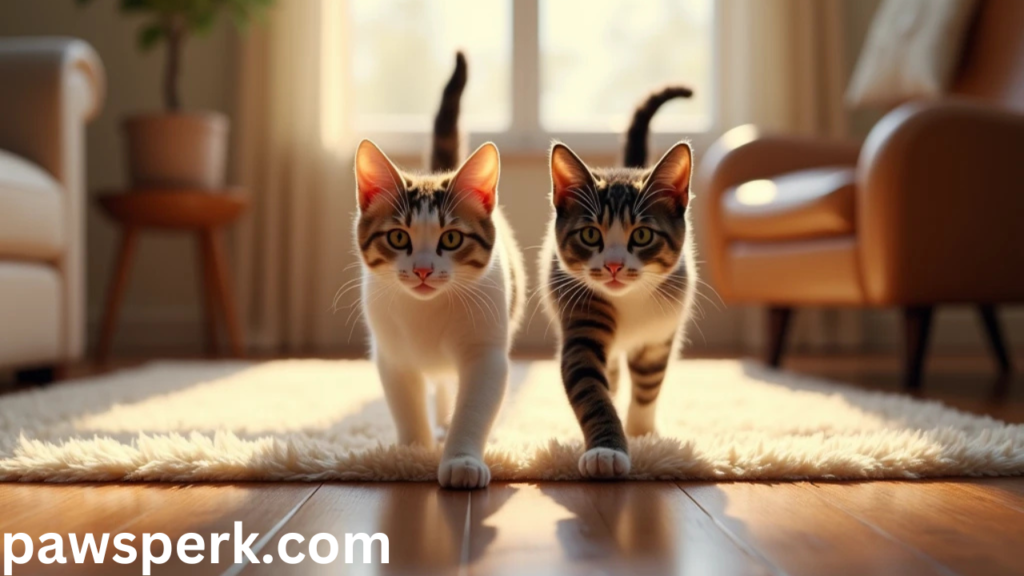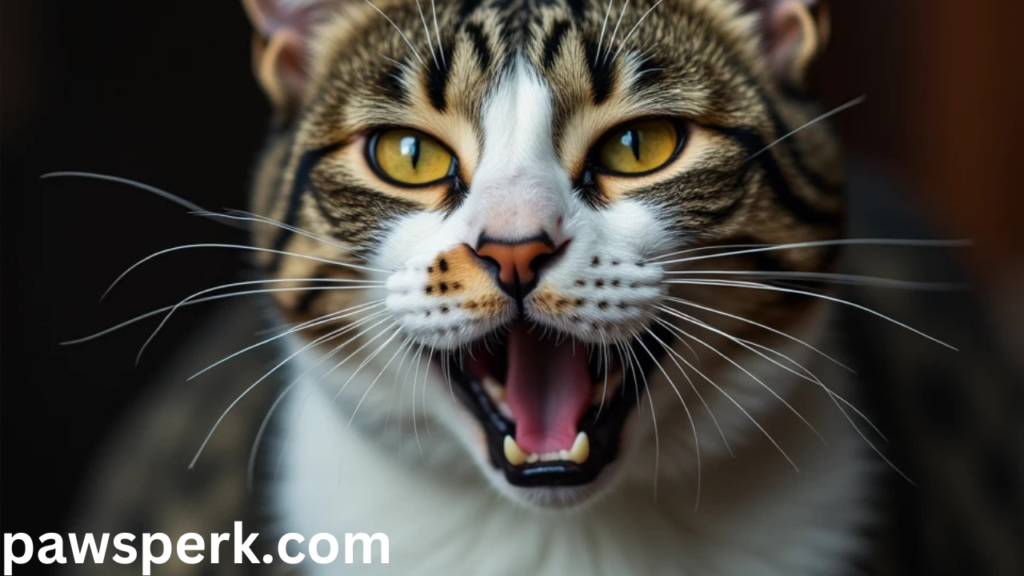For pet owners, Cat Breathing Heavy can be a worrying indication. Since cats are generally quiet and reserved animals, any alteration in their respiratory patterns is significant, in contrast to dogs. This blog post will discuss the possible reasons behind cats’ labored breathing, the health implications, and when to get veterinarian help.
Comprehending Cats’ Heavy Breathing
Heavy breathing in cats, also known as labored respiration, can manifest as rapid breathing, open-mouth breathing, or panting. While it may sometimes occur after exercise or during stressful situations, persistent or recurring heavy breathing is often a warning sign of an underlying health issue that requires attention. Understanding these symptoms can help cat owners recognize when to seek veterinary care to ensure their feline’s well-being.
Typical Reasons for Excessive Breathing
Cats’ excessive breathing can be caused by a number of things. Here are some of the most common explanations:
- Conditions Concerning the Respiratory System
Conditions like bronchitis and asthma are common in cats. Asthma symptoms include wheezing, coughing, and increased respiratory rates. It’s important to monitor your cat’s respiratory health closely because chronic bronchitis can potentially generate similar symptoms. - Heart Disease
Heart-related problems can significantly affect a cat’s ability to breathe comfortably. Conditions like congestive heart failure can cause fluid to accumulate around the lungs, which can make breathing difficult. If your cat has both hard breathing and coughing or lethargy, a veterinarian’s examination is necessary.
- Infections
Cats may have trouble breathing regularly if they have respiratory conditions caused by germs or viruses. These infections, which often begin as viral diseases, can progress to more dangerous bacterial infections if treatment is not taken. Possible symptoms include coughing, nasal discharge, and fever.
- Trauma
A cat’s respiratory habits may also be impacted by injuries to the chest or belly. Internal bleeding or pain that prevents normal respiratory function might result from trauma. You should seek veterinarian care right away if your cat is breathing heavily after an injury.
- Stress and Anxiety
Cats are highly sensitive animals, and stressors like loud noises, environmental changes, or the introduction of new pets can trigger anxiety, often leading to labored breathing. Recognizing the signs of stress in your cat and monitoring their behavior during challenging situations can help identify potential triggers. By reducing these stressors, you can improve your cat’s overall well-being and minimize episodes of heavy or labored breathing.
You may also like: Stainless Steel Litter Boxes: Would be the Smart Choice
Recognizing Symptoms
The following symptoms should be taken into account when monitoring your cat for indications of labored breathing:
- Rapid breathing: Often, a higher respiratory rate is the first symptom.
- Mouth breathing: Cats typically breathe through their nostrils, but opening their mouths may indicate that they are in discomfort. The sounds of coughing or wheezing indicate possible respiratory problems.
- Sluggishness: Heavy breathing may be accompanied by a discernible drop in activity levels.
- Cyanosis: Insufficient oxygen levels are indicated by a bluish tinge to the tongue or gums, which needs to be treated very soon.

How to Handle Your Cat’s Heavy Breathing
As soon as you see your cat breathing heavily, you must take immediate action.
- Remain Calm: Your behavior can affect how stressed out your cat is.
- Assess the Situation: Determine if there are any obvious triggers, such as heat or stress.
- Decrease Activity: Suggest that your cat sleep in a peaceful location away from distractions.
- Contact your veterinarian: If the labored breathing persists for more than a few minutes or if it is accompanied by other concerning signs (such as coughing or lethargy), contact your veterinarian immediately.
Treatment Options
The underlying reason of cats’ heavy breathing determines the course of treatment:
- Medication: Corticosteroids can be used to treat asthma and inflammatory conditions. Antibiotics may be necessary for bacterial infections.
- Oxygen Therapy: In severe cases where oxygen levels are dangerously low, more oxygen may be required.
- Fluid Drainage: In situations like hydrothorax (fluid surrounding the lungs), draining the excess fluid may lower pressure and improve breathing.
- Behavioral Modifications: Environmental enrichment and behavioral therapy can help lower stressors for anxiety-induced heavy breathing.
Conclusion
Heavy breathing in cats should never be overlooked, as it often points to an underlying medical condition that requires immediate attention. Cats, being masters of masking pain or illness, may exhibit heavy or labored breathing as one of the few visible signs of distress. Conditions such as respiratory infections, heart disease, asthma, or even stress-related issues could be the root cause. Identifying these issues early on is crucial for providing timely treatment and improving your cat’s quality of life.
By understanding the common causes of heavy breathing in cats—such as allergies, fluid buildup in the lungs, or physical trauma—you can better recognize when something isn’t right. Regular veterinary check-ups are essential in catching potential health problems before they escalate, allowing your cat to receive the appropriate medical care they need. Additionally, monitoring your cat’s daily behavior, including their breathing patterns, activity levels, and appetite, can provide valuable insights into their overall health.
Staying informed about your feline friend’s health needs and being proactive in seeking veterinary care can make a world of difference. If you notice labored breathing, coughing, or any unusual signs, don’t hesitate to consult a veterinarian. By prioritizing your pet’s health and well-being, you can ensure that they lead a happy, healthy, and stress-free life.
This expanded version adds more detail about possible causes, emphasizes the importance of early intervention, and includes SEO-friendly keywords such as heavy breathing in cats,causes of labored breathing in cats, veterinary check-ups, and feline health care.


